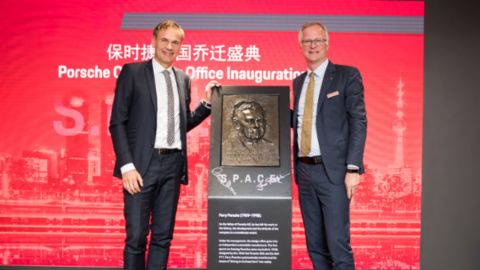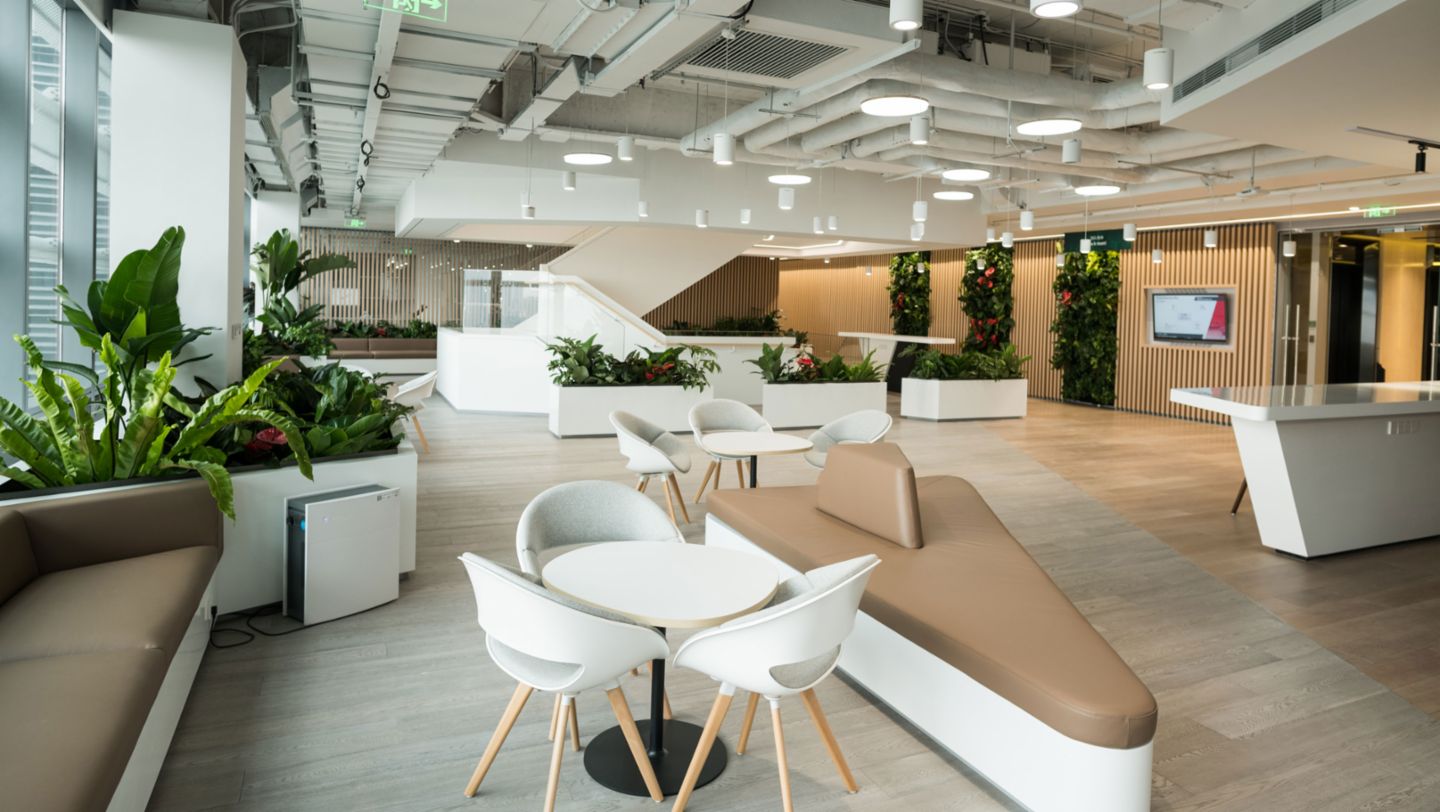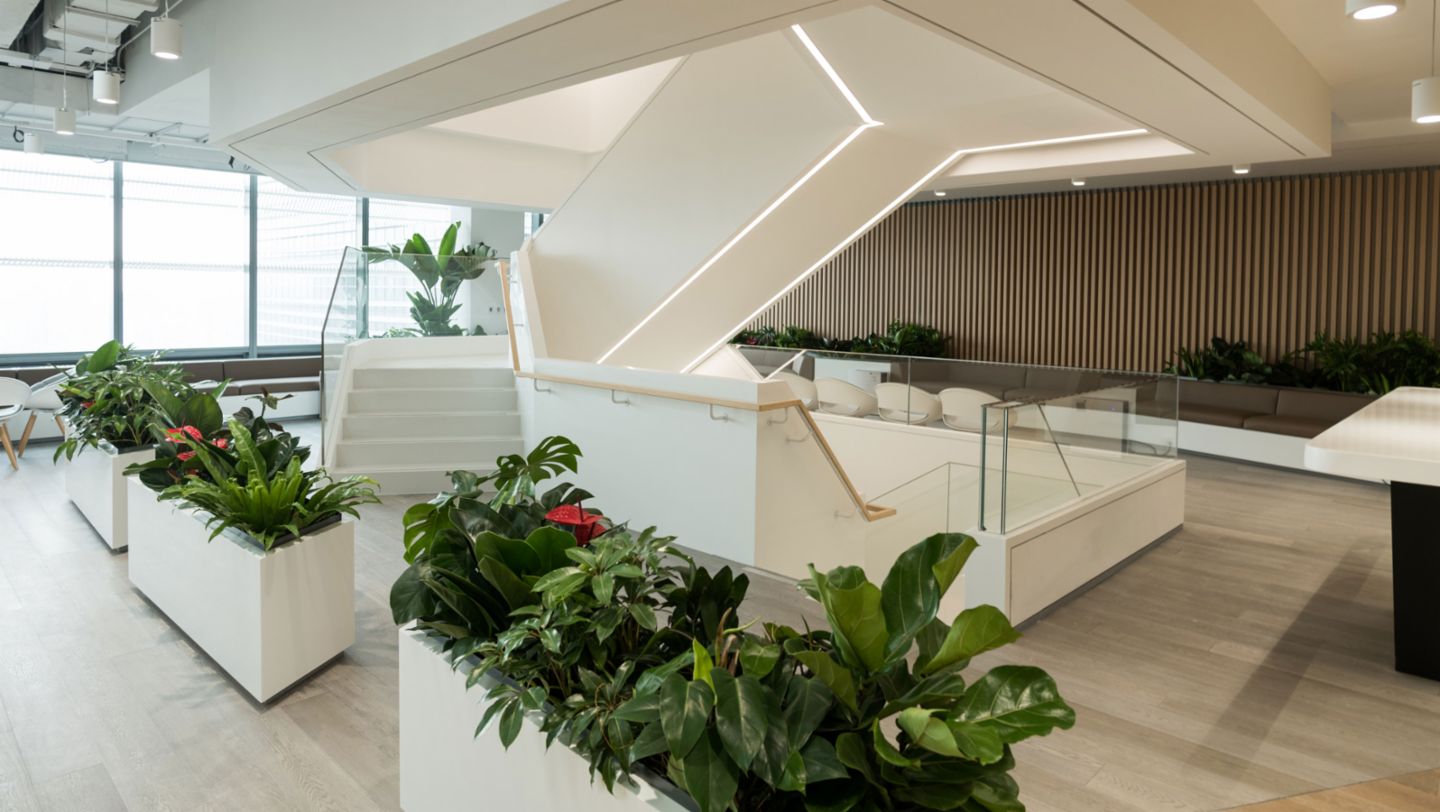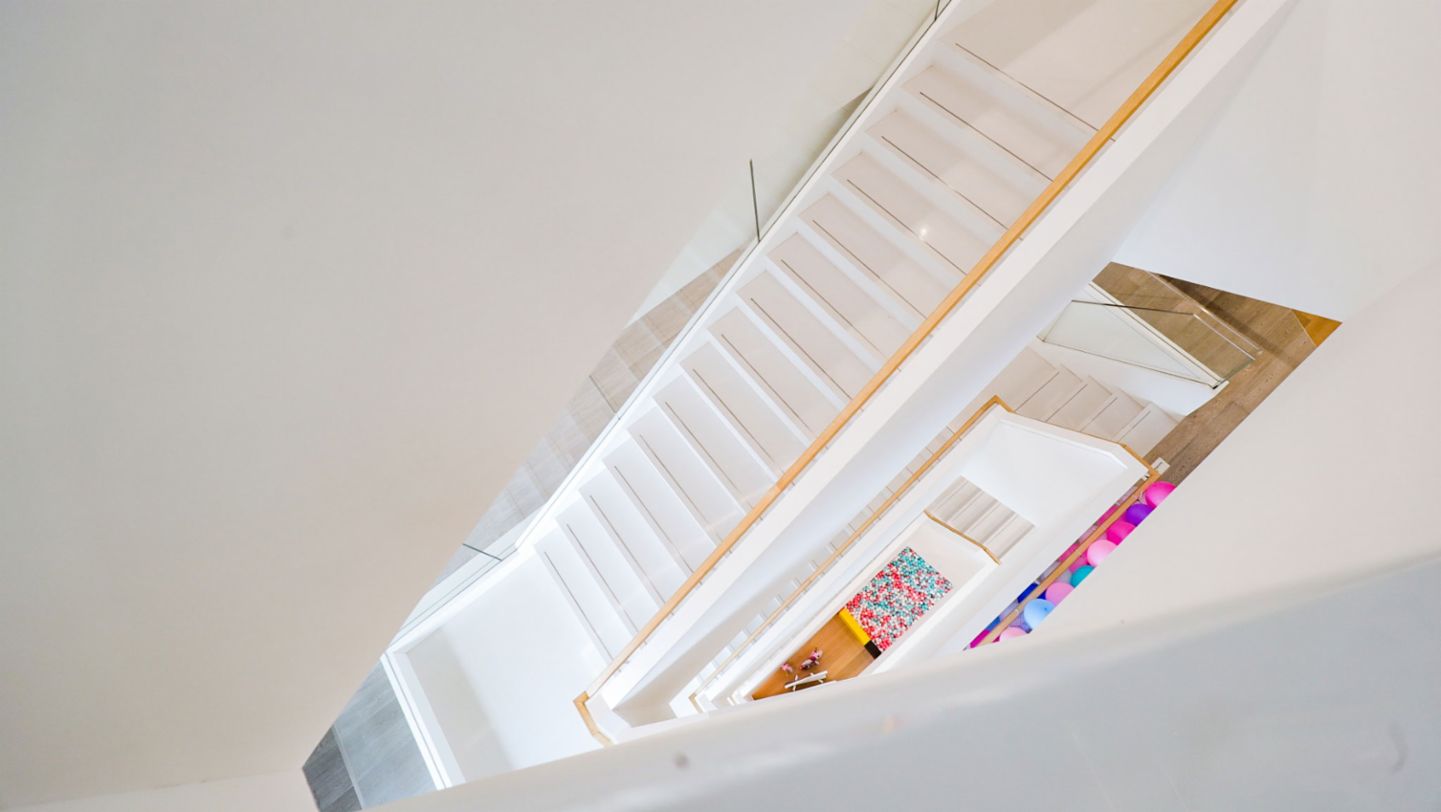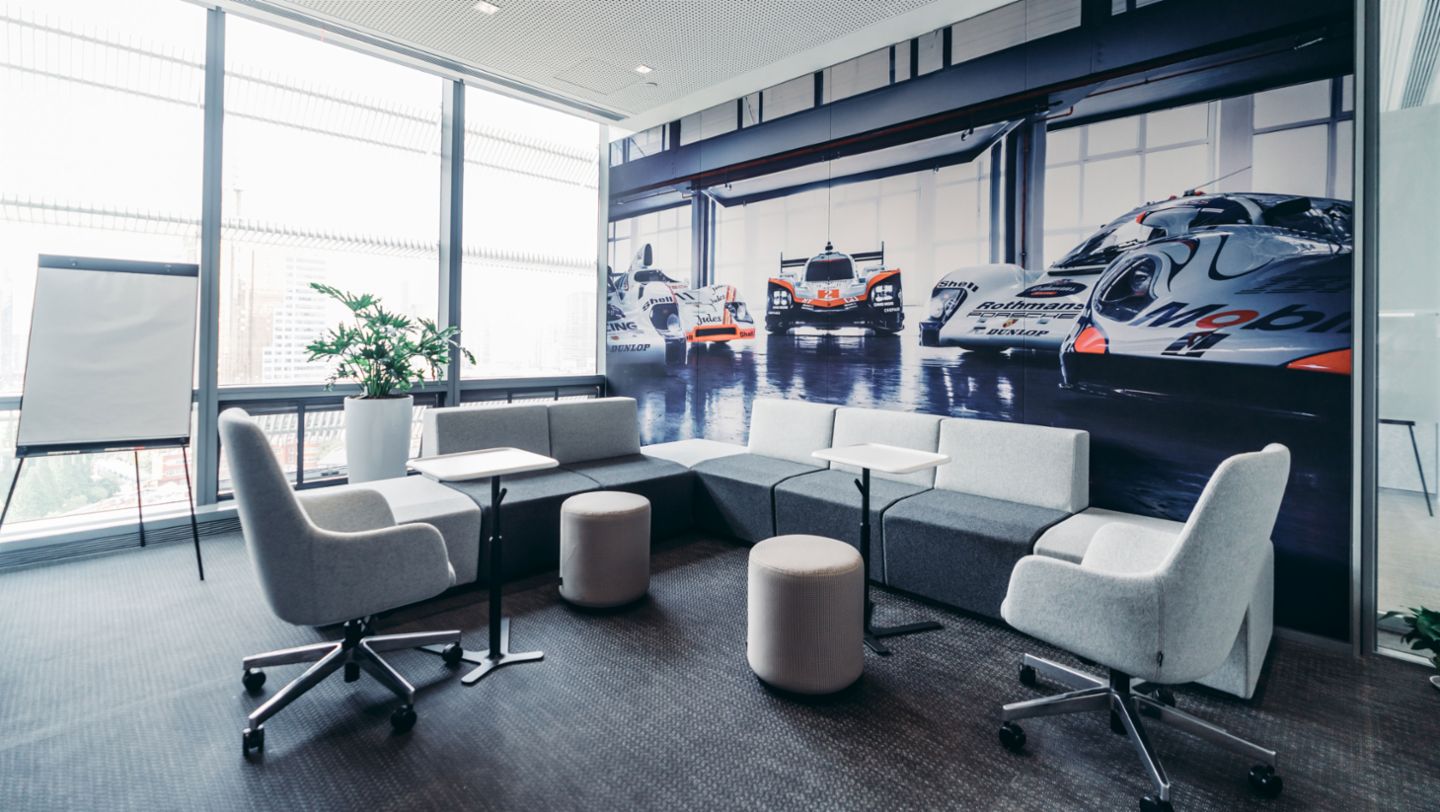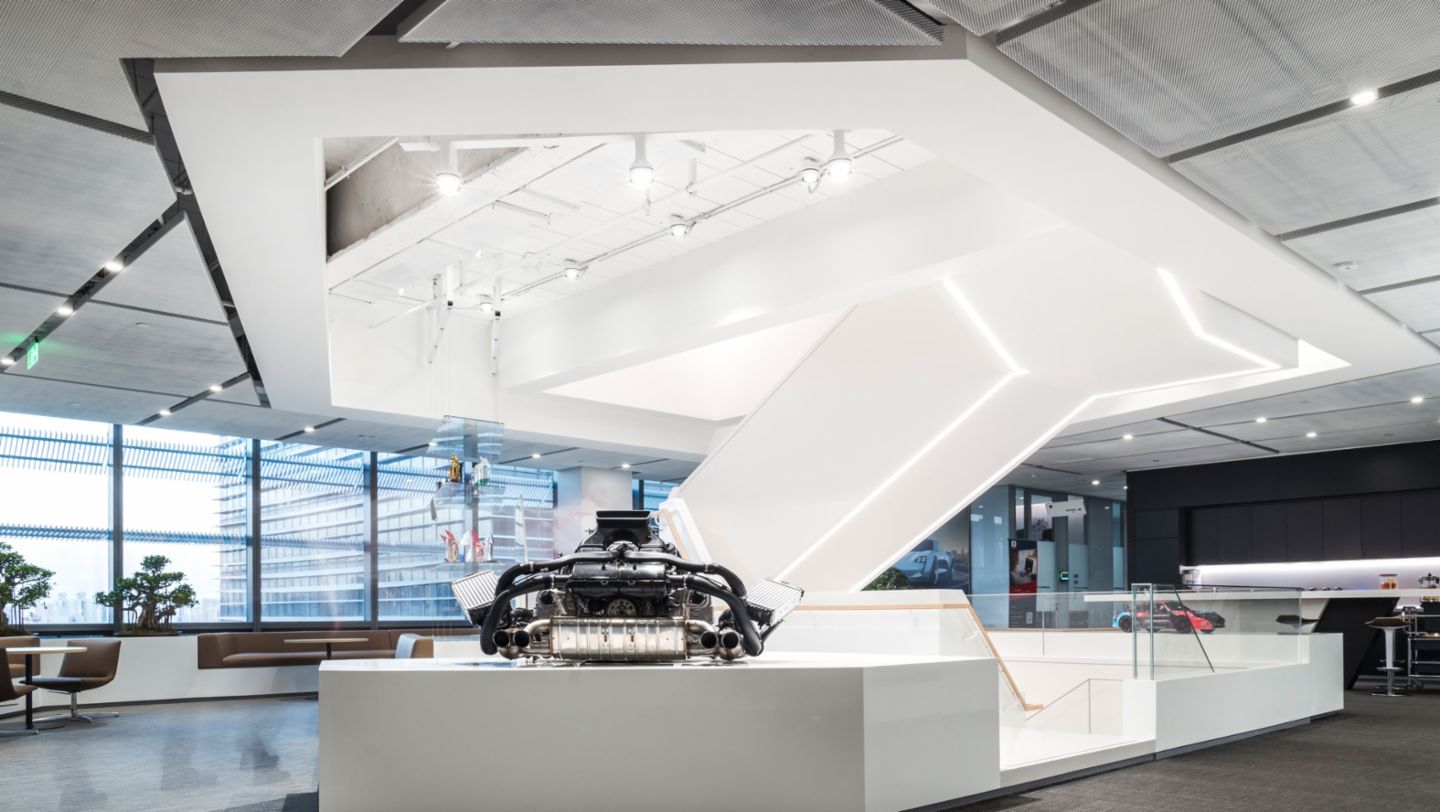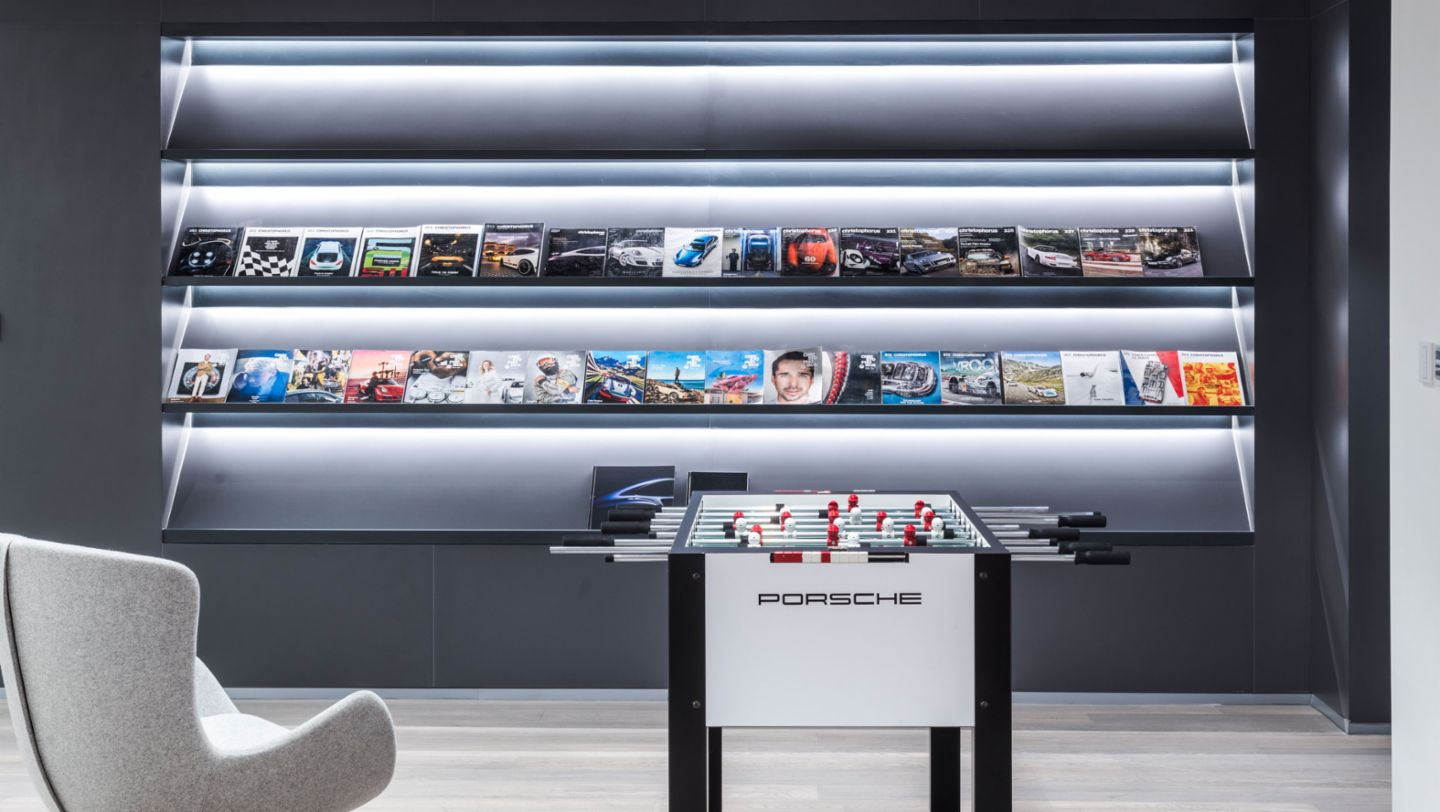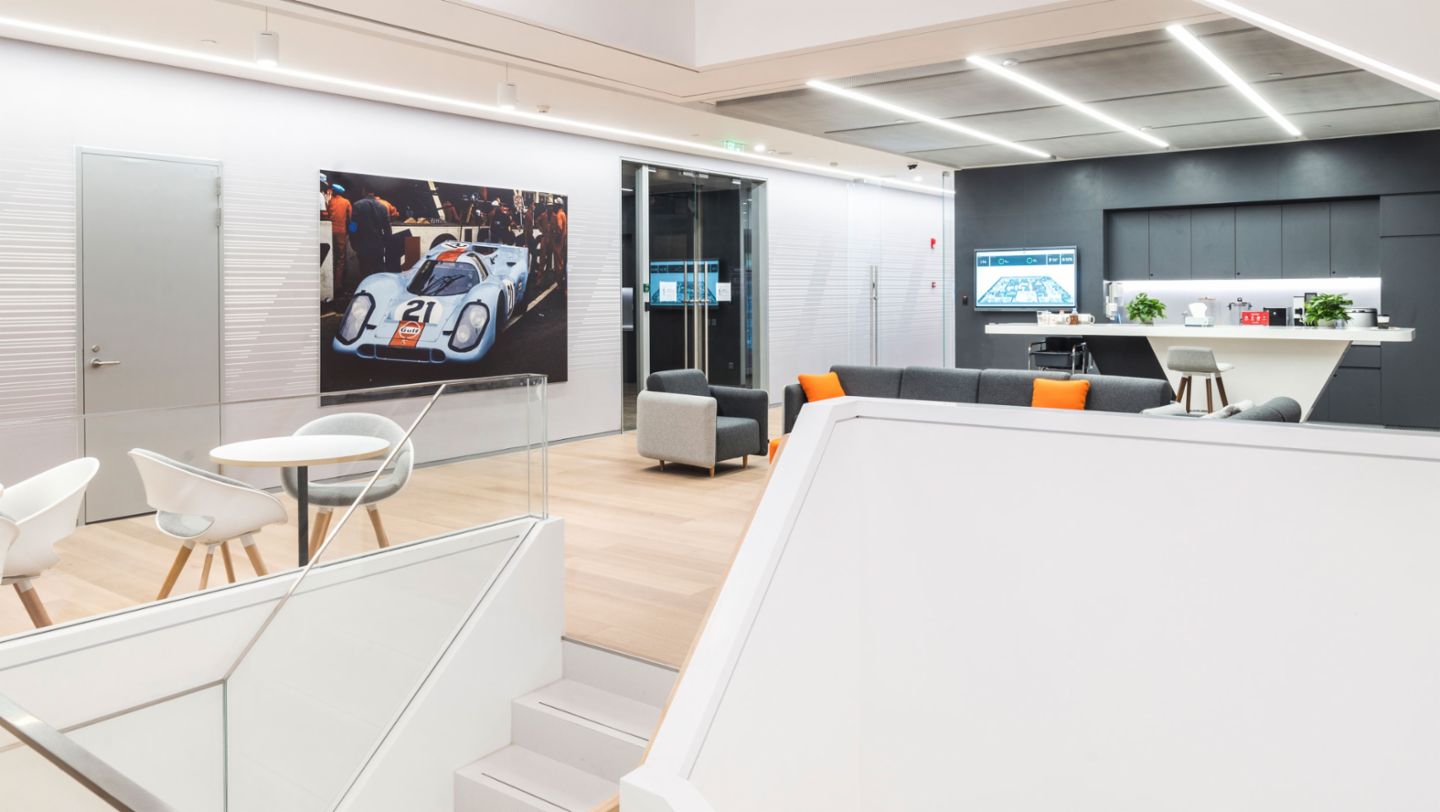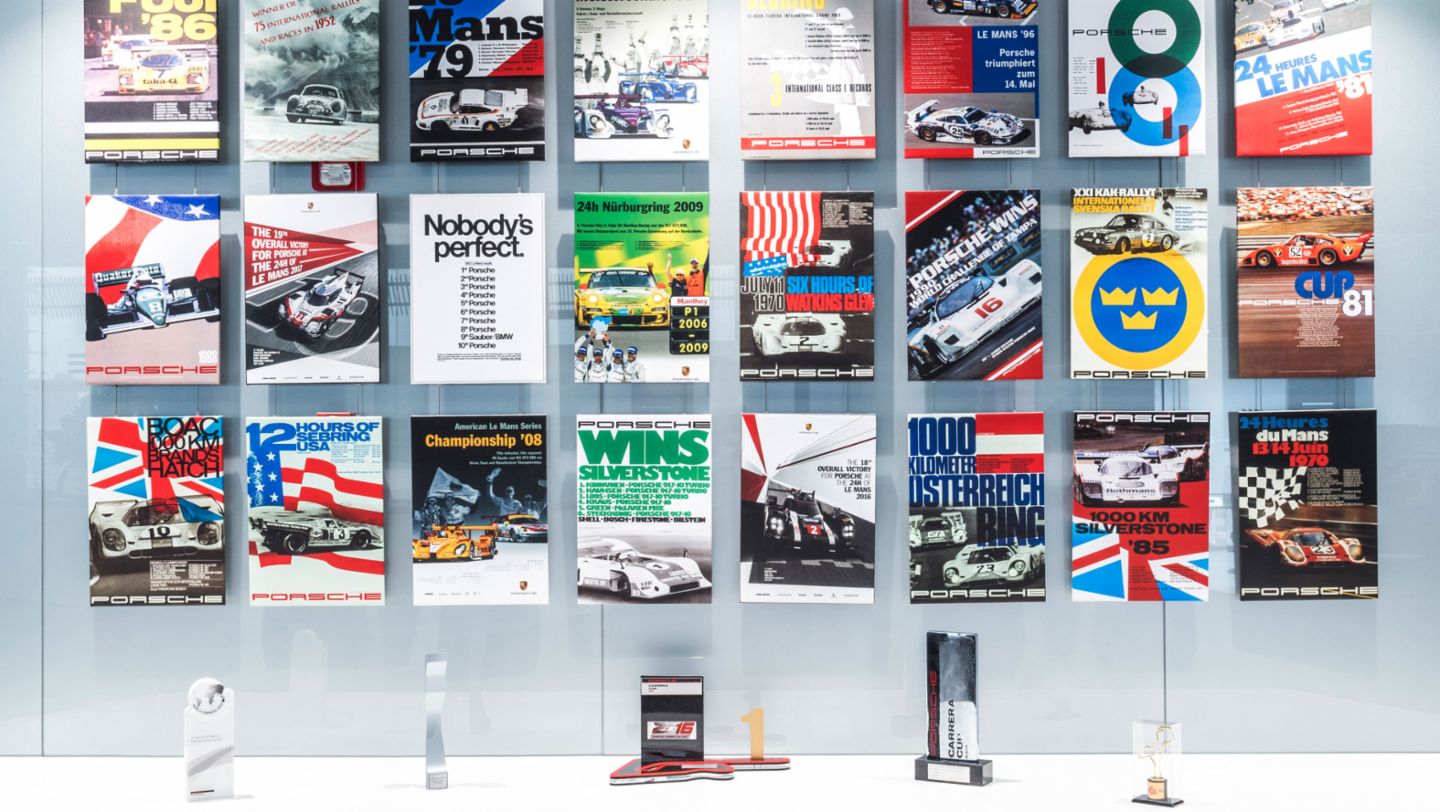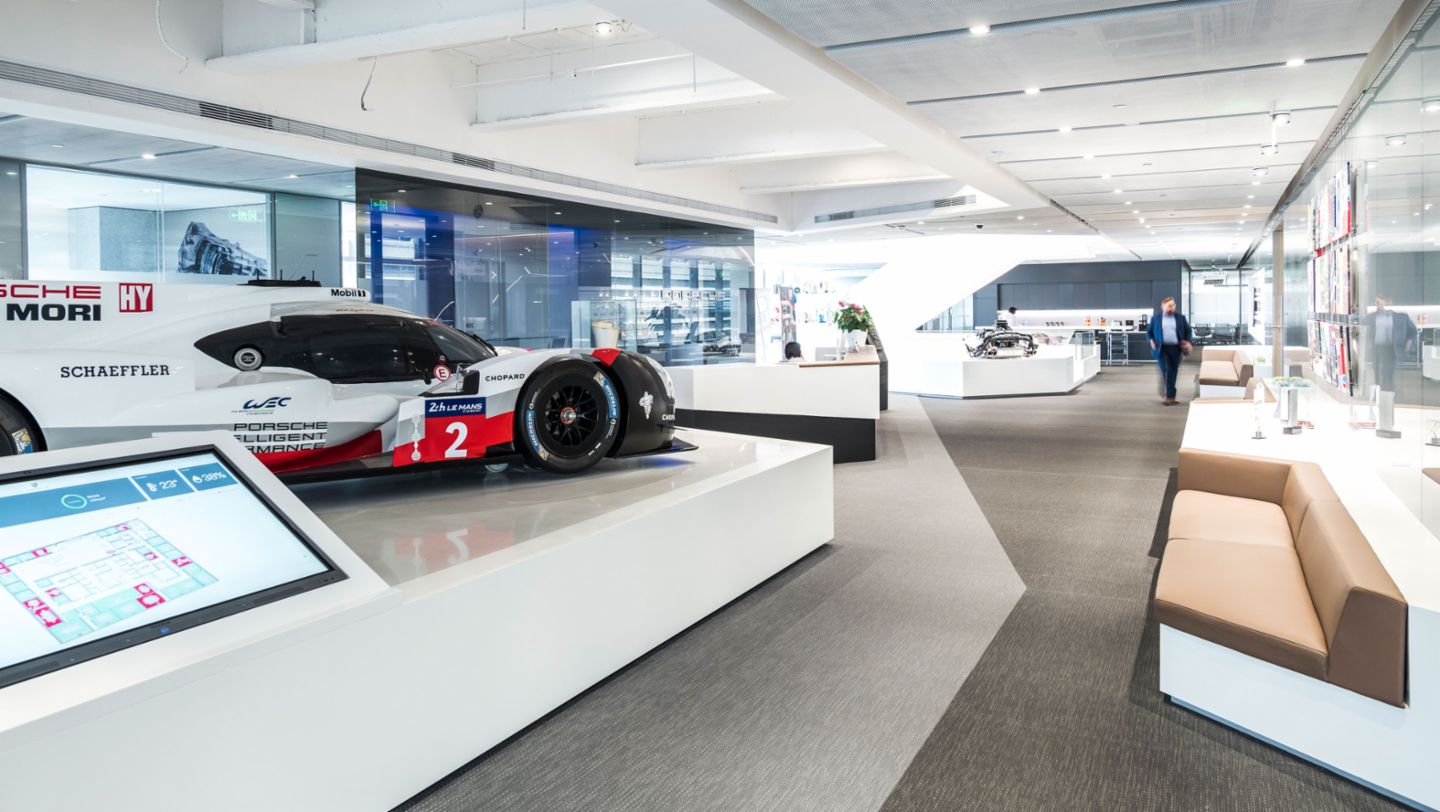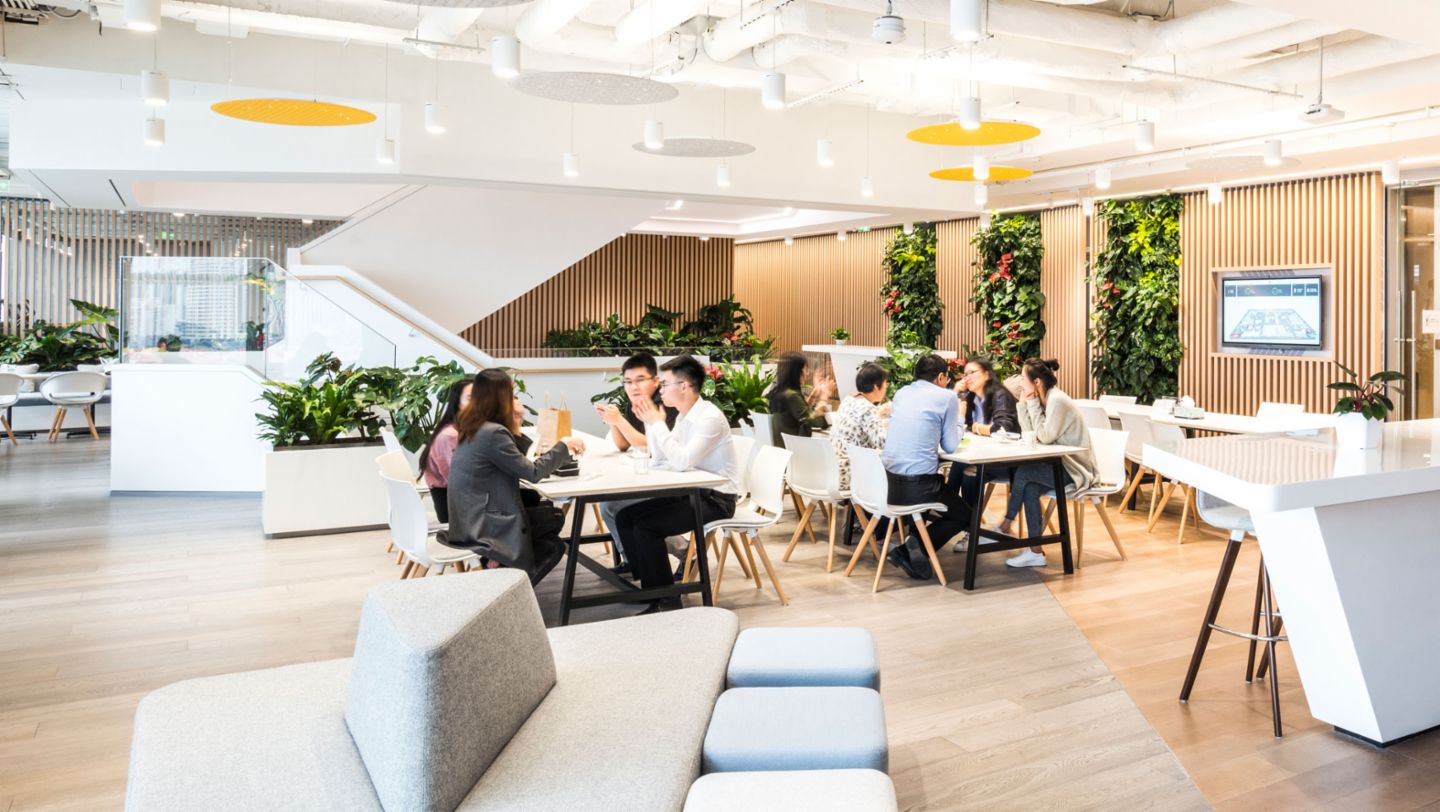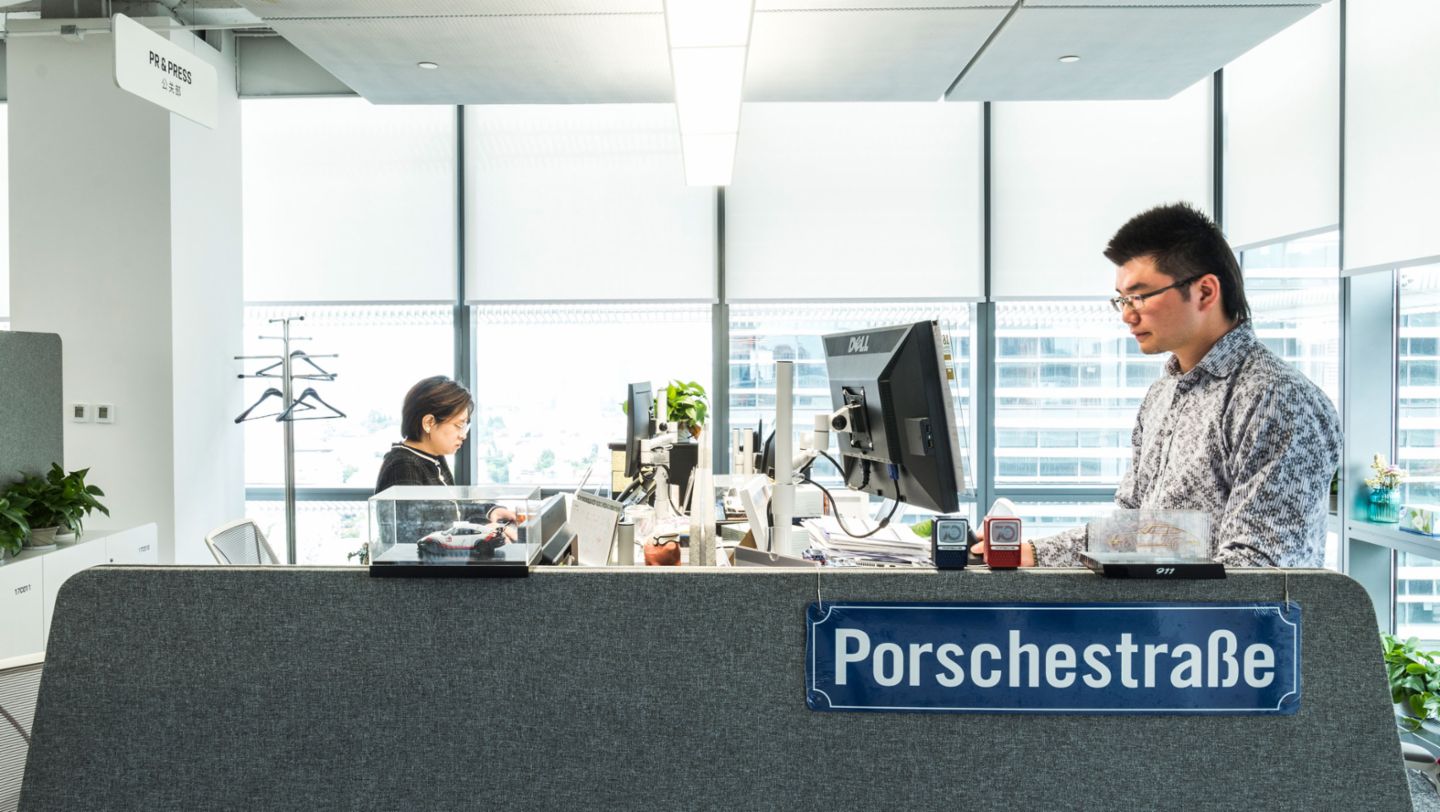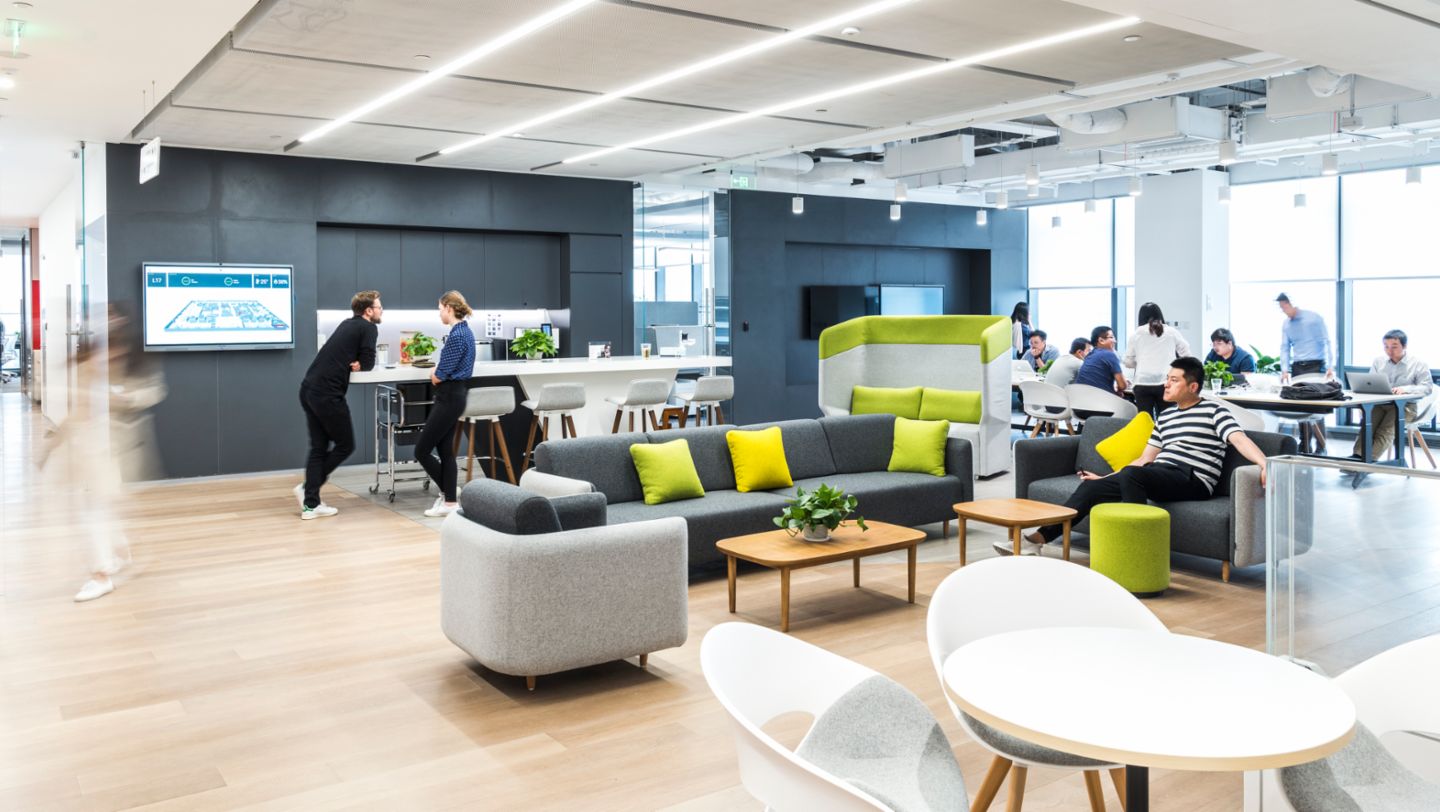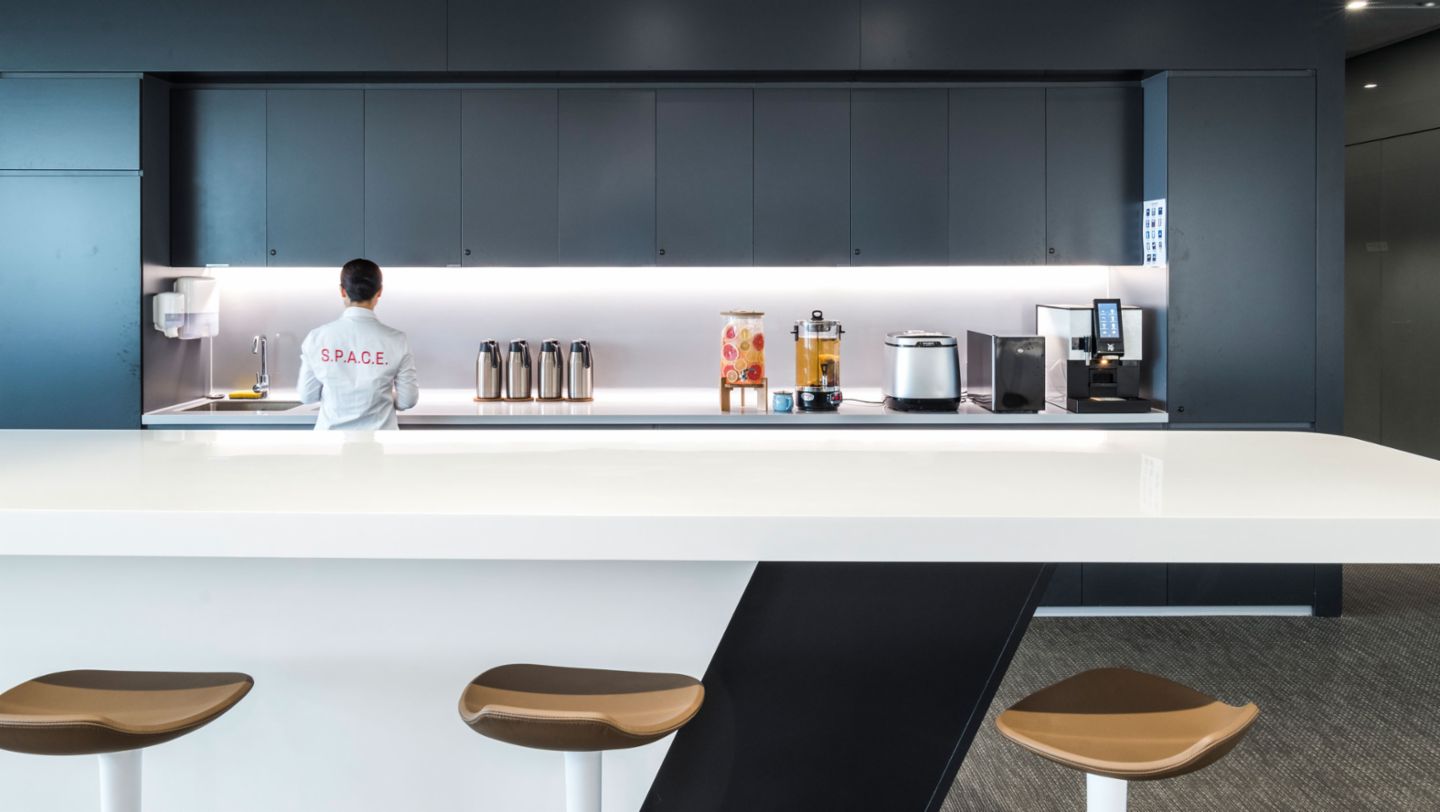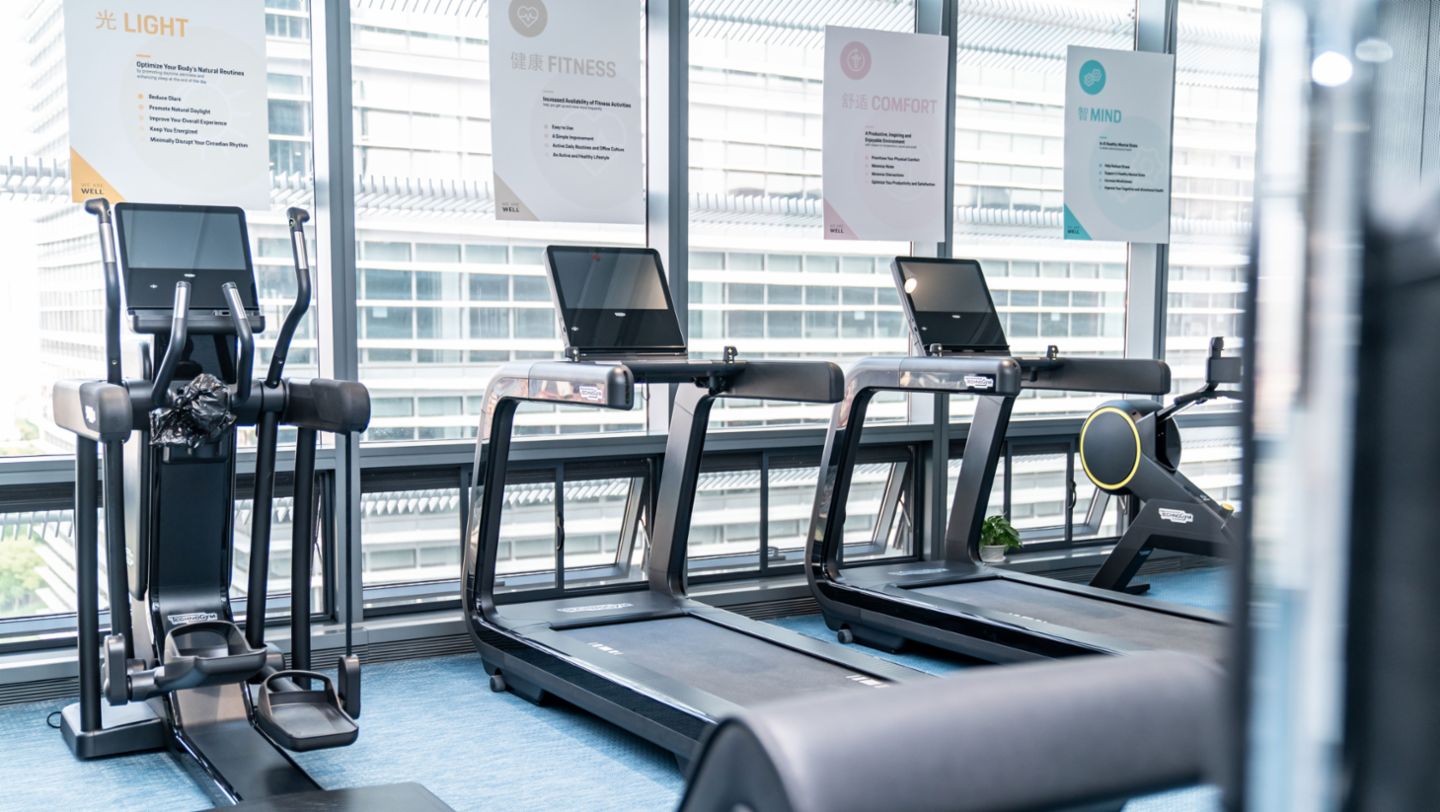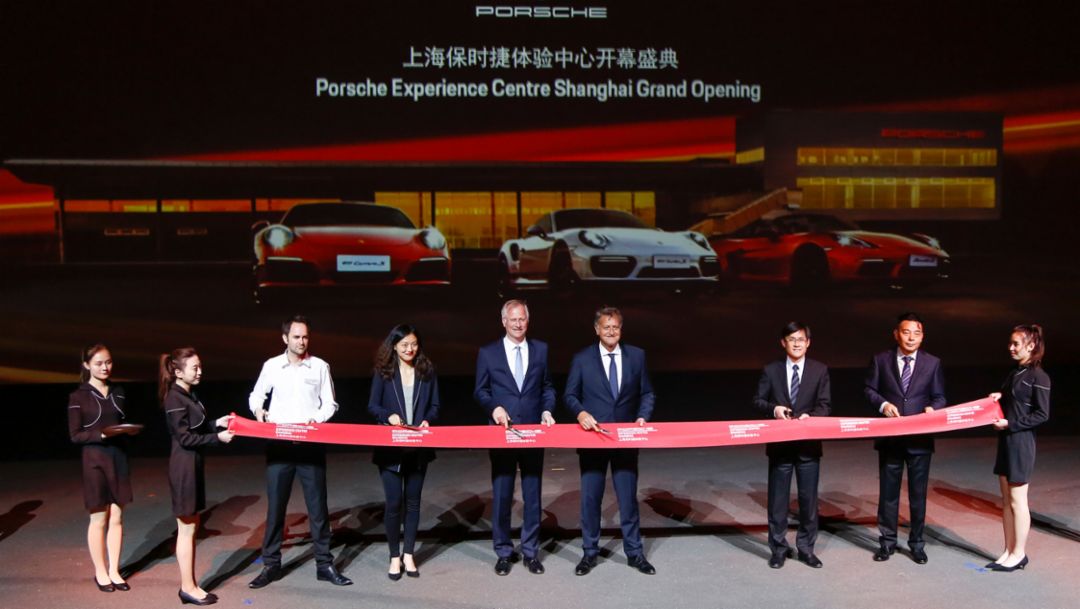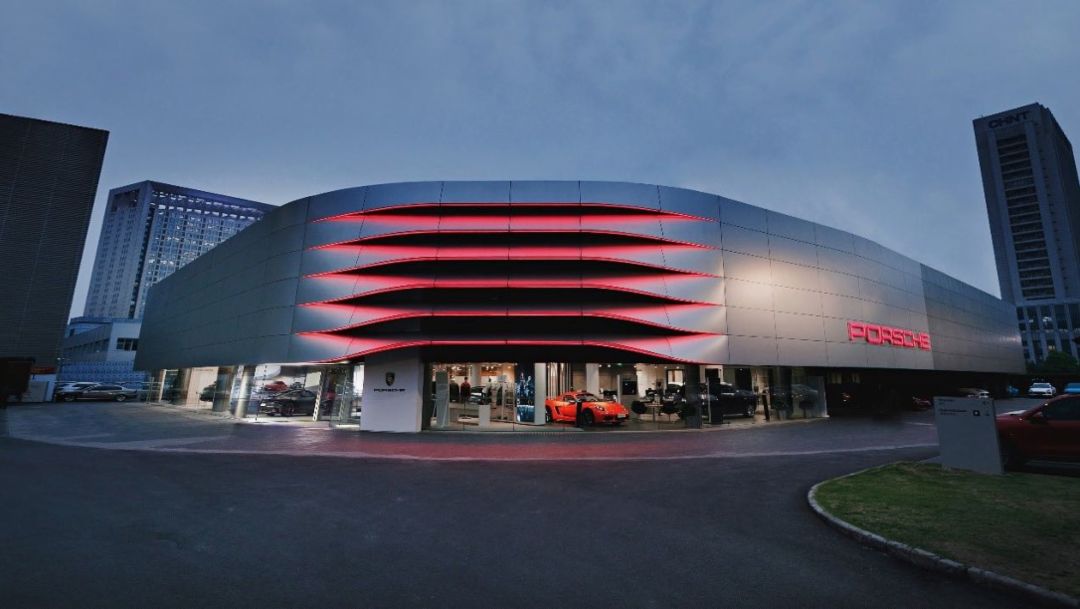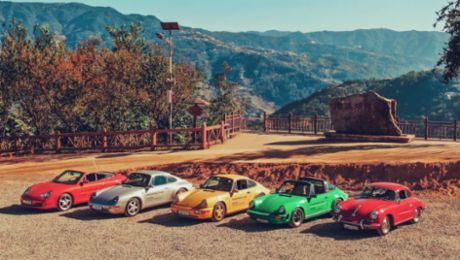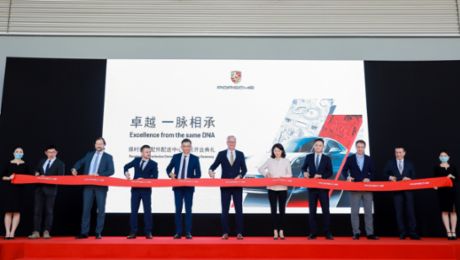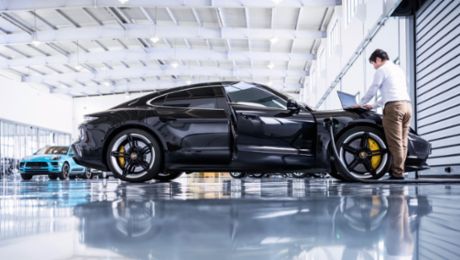What China has been experiencing since the 1980s is nothing less than “the greatest economic upswing in the history of modernity”. This is how it is described by the German Federal Agency for Civic Education – an institution that is not prone to exaggeration. For 20 years now, China’s rise to become the second largest economy has also been linked to the history of Porsche.
It is an extremely dynamic chapter that is being written here. With 88,968 deliveries last year, China is Porsche's largest single market by volume. Despite the coronavirus pandemic, 2020 marked an increase of three per cent compared to the previous year.
Start of a new chapter for Porsche in China
When Porsche China moved into its new headquarters in the prestigious Lujiazui Financial Plaza in Shanghai nearly two years ago, it was not simply a change of location. “It is also the beginning of a new chapter for Porsche in China and an important milestone for Porsche AG,” emphasised Oliver Blume at the opening. “At Porsche, we are committed to giving our employees the opportunities to work successfully and to providing them with a more digital and intelligent working environment. In doing so, we want to further develop our corporate culture and usher in the new age of change together with our employees.”
The fact that the CEO had travelled to China especially for this purpose shows how important the market is for the company – a market that Blume knows very well from his own experience. At the end of the 1990s, he was the first German student to earn a doctorate at the Institute of Automotive Engineering at Tongji University in Shanghai. Back then, he experienced the spirit of optimism "made in the Far East" at first hand. What did Blume take back to Germany? "That the people here have great creativity and a willingness to develop themselves and the region."
These qualities also took over floors 12 to 17 of Office Tower 3 at the Lujiazui Financial Plaza two years ago. Here, across an area of 12,000 square metres, Porsche has set up modern workspaces with the latest technology for its employees, creating an automated and networked environment.
Leading the way in the introduction of sports car culture
In 2001, digitalisation in the vehicle sector was still in its infancy; only visionaries, if any, were thinking about networking. At that time, Porsche delivered the first sports cars to China via Hong Kong. Four years later, the first importer was founded in Guangzhou, and in the noughties, first Porsche Hong Kong and then Porsche China were established. By 2015, China was already the largest single market for the Zuffenhausen-based sports car manufacturer. You could call it a success story – and not only in terms of pure sales figures.
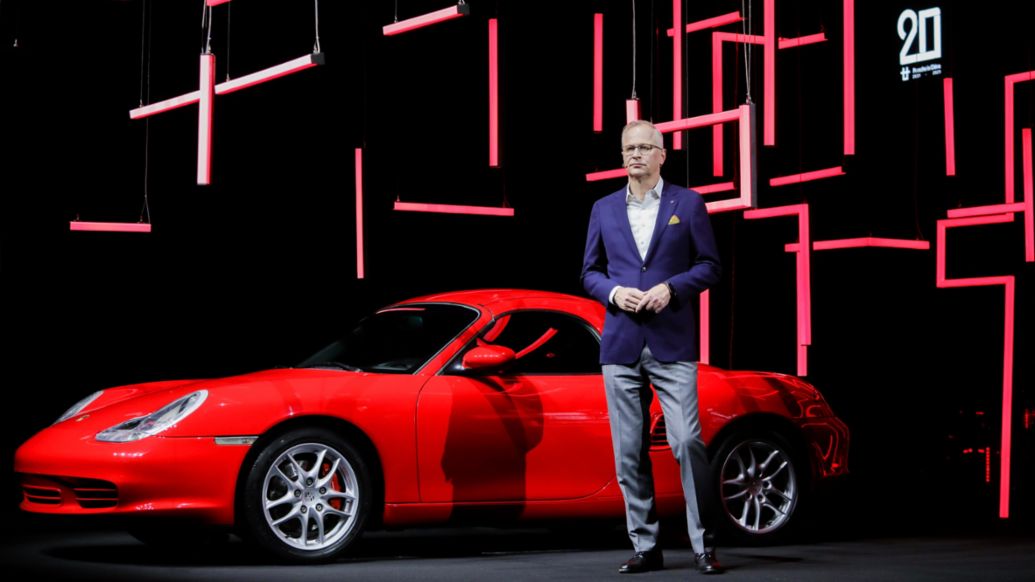
The brand has also arrived emotionally in this still quite young market. "We played a pioneering role in introducing the sports car culture to the market. This was one of our main goals," says Jens Puttfarcken, President and Managing Director of Porsche China, looking back. And further deeds followed: as early as 2003, the Porsche Carrera Cup Asia was introduced as the first brand series. Since then, an enthusiastic and lively community has developed, as evidenced by the founding of the Porsche Club China in 2017. The Porsche Museum was also a recent guest with its "Heritage Experience" event format.
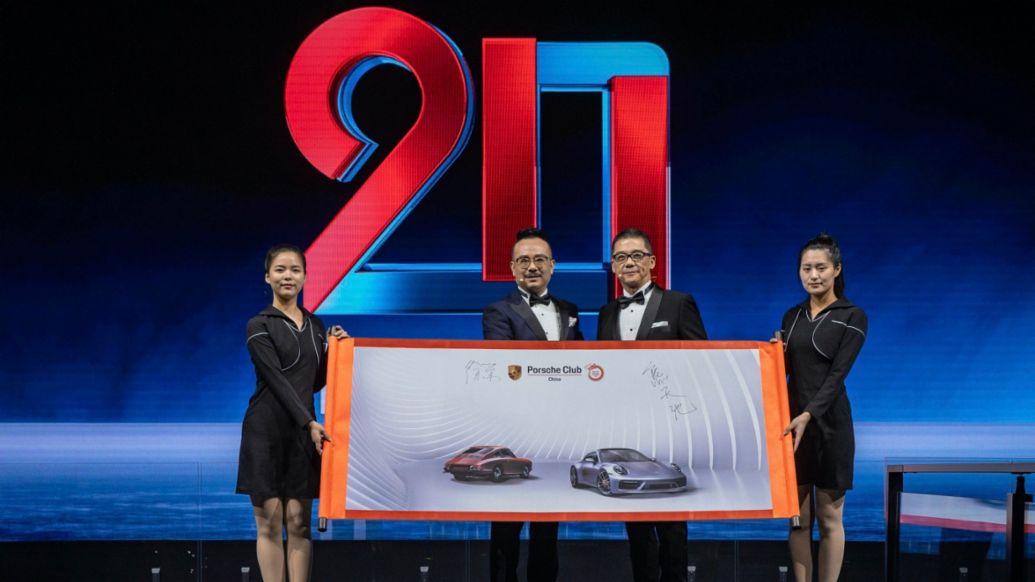
The fact that the CEO had travelled to China especially for this purpose shows how important the market is for the company – a market that Blume knows very well from his own experience. At the end of the 1990s, he was the first German student to earn a doctorate at the Institute of Automotive Engineering at Tongji University in Shanghai. Back then, he experienced the spirit of optimism “made in the Far East” at first hand. What did Blume take back to Germany? “That the people here have great creativity and a willingness to develop themselves and the region.”
Porsche China in the Lujiazui Financial Plaza
These qualities also took over floors 12 to 17 of Office Tower 3 at the Lujiazui Financial Plaza two years ago. Here, across an area of 12,000 square metres, Porsche has set up modern workspaces with the latest technology for its employees, creating an automated and networked environment.
Leading the way in the introduction of sports car culture
In 2001, digitalisation in the vehicle sector was still in its infancy; only visionaries, if any, were thinking about networking. At that time, Porsche delivered the first sports cars to China via Hong Kong. Four years later, the first importer was founded in Guangzhou, and in the noughties, first Porsche Hong Kong and then Porsche China were established. By 2015, China was already the largest single market for the Zuffenhausen-based sports car manufacturer. You could call it a success story – and not only in terms of pure sales figures.
Jens Puttfarcken, President and Managing Director of Porsche China, looks back on Porsche's success in China. The brand has also arrived emotionally in this still quite young market. “We played a pioneering role in introducing the sports car culture to the market. This was one of our main goals,” says Jens Puttfarcken, President and Managing Director of Porsche China, looking back. And further deeds followed: as early as 2003, the Porsche Carrera Cup Asia was introduced as the first brand series. Since then, an enthusiastic and lively community has developed, as evidenced by the founding of the Porsche Club China in 2017. The Porsche Museum was also a recent guest with its “Heritage Experience” event format.
The activities are also reflected in the figures. In 2020, the 911 and the 718 recorded robust sales growth of 70 and 50 per cent respectively. This means that China is now the third-largest global market for two-door Porsche sports cars, even though the Chinese were initially more interested in other model series. The Cayenne and Macan have been the most sought-after vehicles for years, and China is also the largest single market for the Panamera. The reason: Porsche was perceived primarily as a luxury brand when it entered the market. The aspect of sporty driving has only gradually established itself, thanks in part to the efforts of the team at Porsche China, who have worked hard to cultivate a sports car culture.
The younger generation is the driver for innovation
The customer groups are as diverse as the market itself. They range from family-oriented SUV owners to brand enthusiasts who enjoy living out their passion at the Porsche Experience Centre Shanghai, which opened in 2018. In addition to a high demand for vehicle quality, China also pays great attention to individualisation. In any case, the demand for Porsche options is growing steadily. This could also be due to the customer structure: at 35, the average age of customers is significantly lower than elsewhere. The proportion of women buying Porsche cars is also significantly higher.
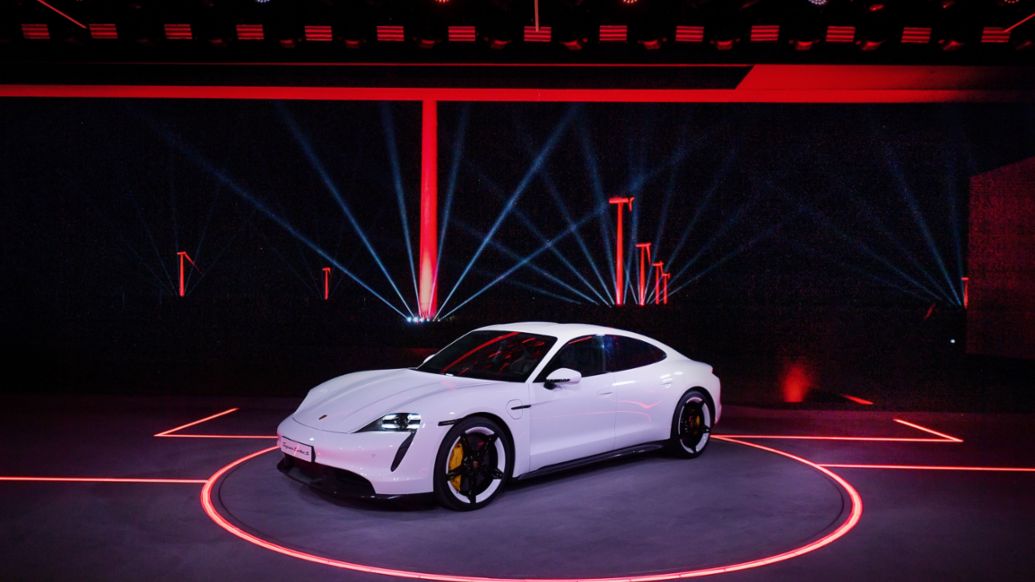
Porsche China is also developing dynamically in other areas. There are now 136 sales outlets in operation on the Chinese mainland, in Hong Kong and in Macau. This ensures that Porsche customers throughout the region receive the personal service that distinguishes Porsche worldwide. Most of the sales outlets are concentrated in southeastern coastal cities and some in the western regions. Currently, the dealer network is being expanded to smaller cities with great potential. Porsche China is also pursuing a strategy with modern retail formats such as pop-up stores, Porsche Studios or City Service Centres.
The younger generation is driving innovation and digitalisation – and at Porsche too. Not only do they increasingly demand diversified and individualised products: “In addition to traditional points of contact, our customers also expect us to interact with them more and more via digital channels,” Puttfarcken notes. For this reason, Porsche China has developed a variety of digital products and services, such as an e-commerce platform, livestream events or a profile on the WeChat app, which can be used, for example, to conveniently book a service appointment while on the road. Last October also saw the launch of the Porsche Tmall Flagship Store, the only officially authorised Porsche flagship store on a third party e-commerce platform.
New development opportunities through electrification and AI
Digitalisation is shaping the Chinese market. There are 817 million internet users there, and mobile payment via smartphone is standard. An independent and unique technological ecosystem has made China a leading player in the digital economy, with investment focused on cutting-edge technology such as internet finance, virtual reality, big data and artificial intelligence.
It was only logical, therefore, that the digital department responsible for China was spun off as Porsche Digital China at the beginning of this year, following the creation of the Strategic Business Development department in 2018. One of its subordinate teams, the Innovation Office, is dedicated to researching new market trends and explores new technology being developed in China.
In turn, these insights help Porsche AG shape the future of the sports car. The government itself is also driving the rapid technological development. In its 14th Five-Year Plan, China defines new development goals and formulated long-term targets for 2035. These include new energy sources for propulsion, intelligently networked vehicles, battery recycling and new infrastructures. “The new era of the Chinese car industry is taking shape. The trend towards electrification and artificial intelligence will open up new development opportunities,” says Puttfarcken. “The Taycan, for example, has numerous intelligent functions such as data retrieval and online updates. We are working on developing intelligent solutions exclusively for Porsche sports cars.”
Average age of Chinese Taycan buyers: 33 years old
Porsche's first electric sports car – which was unveiled in 2019 at a wind farm in the Chinese province of Fujian – is extremely popular with young, internet-savvy Chinese buyers, whose average age is just 33.
World premiere of the Taycan in China
Porsche China is also developing dynamically in other areas. There are now 136 sales outlets in operation on the Chinese mainland, in Hong Kong and in Macau. This ensures that Porsche customers receive the personal service that distinguishes Porsche worldwide. Most of the sales outlets are concentrated in southeastern coastal cities and some in the western regions. Currently, the dealer network is being expanded to smaller cities with great potential. Porsche China is also pursuing a strategy with modern retail formats such as pop-up stores, Porsche Studios or City Service Centres.
Back to Shanghai, and the headquarters of Porsche China were designed in line with a philosophy called S.P.A.C.E., which stands for Smart, Passionate, Attractive, Collaborative, Engaging. It fuses new technology and modern digital solutions with customised services into a holistic, long-term vision. The aim is to unleash the full potential and creativity of the employees. Numerous subsidiaries, including Porsche Financial Services, Porsche Consulting and MHP, are also housed on the 12th to 17th floors of Office Tower 3. This promotes exchange, cooperation, flexibility and innovation.
This is entirely in the spirit of Jens Puttfarcken. “We are thereby investing in the future of the Porsche brand and in our talented employees. With this, we want to be prepared for the challenges and rapid changes that lie ahead in this data and digitalisation-oriented business world,” he said at the opening two years ago. Relating to today: the next 20 years can come – Porsche China is ready.
911 Turbo S 20 Years Porsche China Edition
To mark its anniversary, Porsche China presented the 911 Turbo S 20 Years Porsche China Edition special edition at the 19th Shanghai International Automobile Industry Exhibition. The design concept reflects the combination of heritage and innovation – values that apply to both Chinese culture and Porsche. The special model is only available in China.

